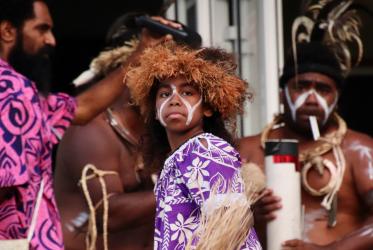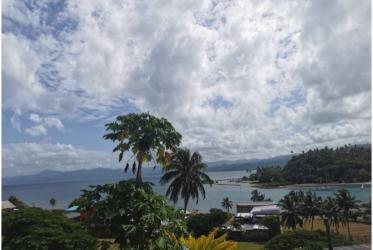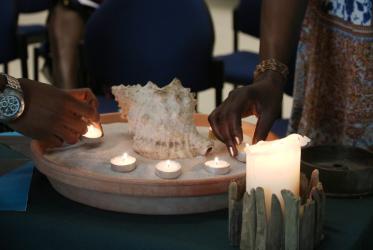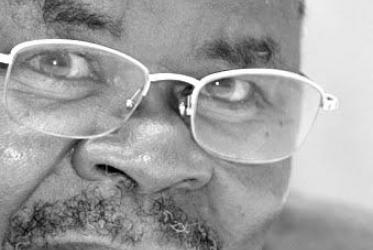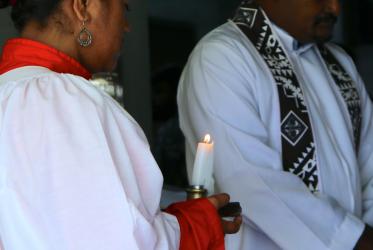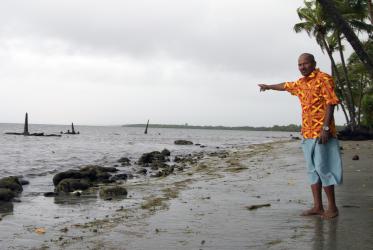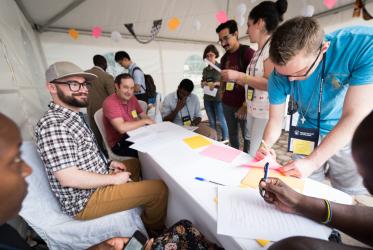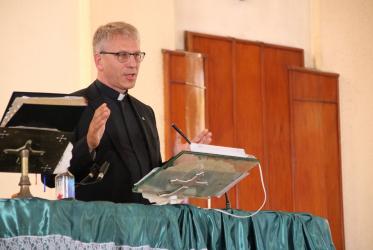Displaying 1 - 20 of 23
WCC extends prayers for Tonga in wake of volcanic eruption
17 January 2022
Applications open for WCC Eco-School
22 October 2020
Churches should use their voice on climate change
26 February 2020
Moravian Church in Tanzania launches Thursdays in Black
10 September 2019
‘Sokoni’ transforms marketplace into mission
13 March 2018
In Fiji, “time to go beyond the reef”
14 August 2017
Land rights focus of panel discussion
17 November 2015

